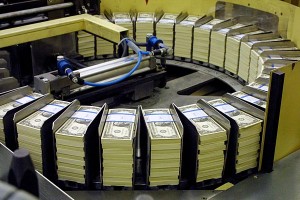Don't forget about inflation

In January, the official unemployment rate dropped from 8.5% to 8.3%, beating experts' expectations. 243,000 jobs were gained, also comfortably beating consensus expectations. The stock market (DOW) rose by approximately 1.9%. Unfortunately, not all the news was good. Digging a bit deeper, several of these gains were negated by the effects of inflation.
For example, while a significant number of jobs were added to the US economy, average hourly earnings increased by a mere 0.2%. At the same time, food prices rose by roughly 1.9%, and gas prices jumped by approximately 3%. Therefore, a significant percentage of Americans actually saw their standard of living drop in January, despite the positive news on the employment and investment fronts.
These statistics remind us of the 'real world' effects of inflation. Loose monetary policy at the Federal Reserve and loose fiscal policy in DC have consequences. Printing money, keeping interest rates at artificially low levels, and running massive budget deficits devalue the Dollar, thereby lowering the standard of living of most Americans, particularly the poor and middle class.
While there was certainly good economic news to cheer last month, the meager rise in wages and the fairly significant increases in food and gas prices should serve as red flags. Inflation is alive and well, and unless it is addressed through stricter monetary and fiscal policies, we can likely expect a similar outcome in the future, an outcome that has plagued the US economy for the last 11 years under the leadership of both Republicans and Democrats.



